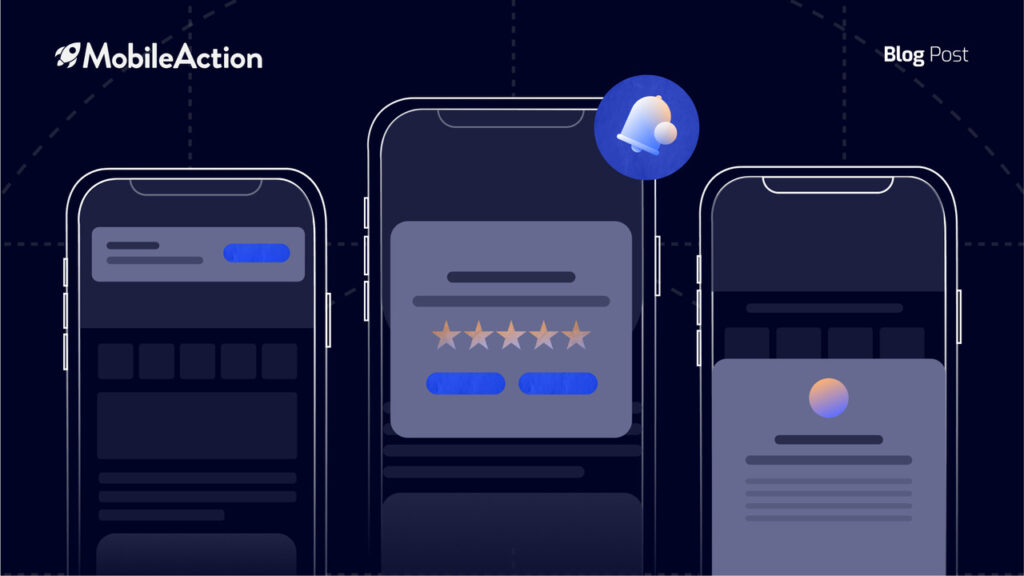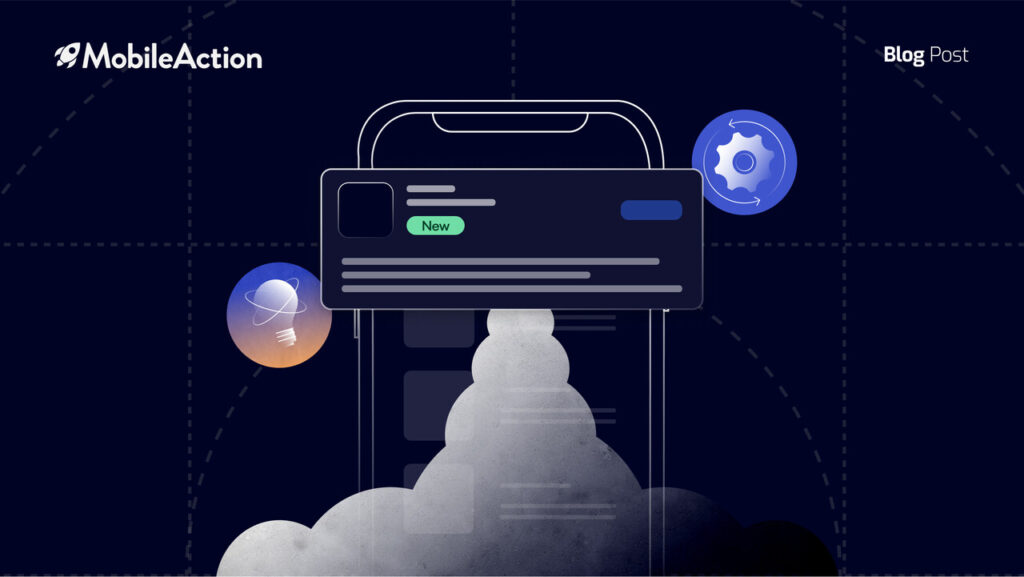ASO is not a simple process, not a one-time job, not a sprint.
Think of it as a long run- a marathon. Thus, the results are not obtained overnight, but if you are willing to invest in it you can get very impressive outcomes.
Since achieving ASO success takes time and a lot of dedication, some do not play fair.
Certain individuals exploit grey areas in app store regulations to rapidly progress.
Though the app stores inevitably uncover these deceitful tactics, the cheaters can temporarily distort the rankings before being apprehended.
In essence, some people cut corners to achieve app store victory more quickly, despite facing repercussions later on.
By the end of this blog, you will be able to understand what black hat ASO is, what makes certain ASO practices black hat, what are the common practices for Black Hat ASO, and how one can counter Black Hat ASO tactics.
What is Black Hat ASO?
Black Hat ASO refers to unethical or manipulative techniques used in App Store Optimization (ASO) to artificially boost the visibility and conversion rates of mobile apps or games.
It involves disregarding or exploiting the rules and guidelines set by app stores in order to achieve higher rankings, increased downloads, and improved user engagement.
These tactics often involve deceptive practices, keyword stuffing, fake reviews, and other strategies that violate the app stores’ policies.
While Black Hat ASO may provide short-term gains, it can lead to severe consequences such as app suspensions, loss of credibility, and negative user experiences.
At MobileAction, we think the right thing is to not use sneaky Black Hat or Grey Hat tricks. They’re unfair to other apps. And any boost they give won’t last long. Plus they could hurt your reputation and money.
But it’s good to know what these shady ASO tactics are.
That way you can spot them if others are using them in the app stores. We say stick to legal White Hat optimization. That will give your app lasting success the right way.
What makes certain ASO practices Black Hat?
The Apple App Store, Google Play Store, and all other app stores have policies and guidelines that every developer and company must follow. These rules promote fairness, no matter the app’s prominence.
For example, without app relevance and user experience factors in their ad systems, big brands could easily outspend competitors for top placements.
So app makers should gain visibility and success through building a great product and using legal optimization techniques.
By playing by the rules, developers can achieve visibility on merit rather than by exploiting loopholes. Ethical optimization helps apps thrive based on quality, not tricks.
To follow White Hat ASO strategies you should take a look at the following resources:
- ASO Handbook 2024: Navigating the Future of App Store Optimization
- A comprehensive guide to App Store Optimization (ASO)
- App Store ASO: Skyrocket your iOS app in Apple charts
- Google Play ASO: Organic Growth Strategy Guide for Android Apps
Common Black Hat ASO practices
1. Fake installs
Faking installs is a common underhanded tactic used by dishonest publishers to improperly boost rankings. It starts with a vendor selling a large volume of cheap app installs.
The quality of these installs varies. For instance, low-cost installs may utilize bots – scripts downloading the app with stolen or fake accounts.
App stores quickly detect and punish bot installs. Real user installs cost more but are harder to identify.
Whether real or fake, buying installs in bulk rockets the app’s rankings for particular keywords, gaining organic traffic from the ranking.
To detect this, watch for sudden huge ranking spikes on keywords, especially in established categories. If it seems too good to be true, it likely is.
Essentially, some publishers artificially boost rankings through bulk low-quality installs, but app stores try to rapidly catch these deceptive tactics.
For example, below you can see the daily installs of ChatGPT. Since the increases and decreases in ChatGPT’s install numbers follow a normal trend, we can say that they do not use illegal app store optimization methods such as Black Hat ASO.
App Analysis – Market Intelligence
Some common ways of Black Hat ASO for fake installs:
Bot installs – Computer-automated accounts/bots can download your app in large volumes (even 2 million times).
Retained bot installs – achieved by sending messages/emails to companies, typically promising a certain number of downloads of your app.
Non-incentivized search installs – Installs that occur after an influencing YouTuber persuades their followers in a video to search for and download a specific app (e.g. search “pro makeup” and download “lipshades” app).
Incentivized search installs – Installs where users get a reward for searching and installing an app (e.g. “Search and install to earn”).
Bot trending searches – Bots artificially get top rankings for trending searches, driving more traffic, installs, and earnings for the app. This happens by targeting searches users are interested in.
2. Keyword stuffing
There are unfortunately some apps that benefit from keyword optimization not legally.
App titles and app descriptions are the fields that have a direct contribution to the visibility of the app. Some Black Hat programmers tend to put a bunch of optimized irrelevant keywords that are already ranking high in the application’s data and/or description that do not mean anything together.
It’s a primitive technique, but it works and has been there since the beginning of black hat.
Keyword stuffing and other black hat SEO techniques may provide instant gratification in the form of app store rankings, but they do more harm than good in the long run.
While optimized keywords in the title and description are important for discoverability, slipping in irrelevant terms purely for their search volume hurts both users and developers.
App store search is meant to smoothly connect users with apps that authentically fulfill their needs – not trick or confuse them with artificially boosted listings.
Developers who engage in keyword manipulation risk app rejection or removal from the app store if their tactics are detected. More importantly, stuffing an app’s metadata with keywords out of context damages the user experience.
Someone searching for a specific term expects relevant results, not an app completely unrelated to their intent.
Benefiting artificially from high-ranking keywords you don’t genuinely relate to is a disservice that will erode user trust over time.
The smarter strategy for sustainable success is focusing organically on the true purpose and value proposition of your app through carefully optimized descriptive elements.
3. Using competitor names
Both Apple and Google strongly advise against using competitor names in your app metadata. While this is a common tactic even top brands use, it can still get your app penalized and lose rankings and reputation.
Let’s look at an example. Say you have an AI chatbot app. Your best keywords should be generic ones that can boost visibility when you start ranking.
However, some developers take the easy route of directly targeting top-ranking competitors. For an AI chatbot, “AI chatbot” is fine, but “AI chatgpt” risks action against your app for targeting a competitor keyword.
How do developers hide competitor names?
On the App Store, adding them to the unseen keyword field works initially. But review teams often catch these and penalize apps.
On the Google Play Store, some leverage A/B testing of long descriptions with low traffic to conceal competitor keywords. This may work temporarily, but Google reviews will eventually uncover the hidden brand names and take strict action.
The key point is that targeting competitor brands in metadata is risky despite being common, since app stores prohibit this and can penalize apps that do it. Generic terms are safer for optimization.
4. Ratings and reviews
Boosting organic traffic through App Store Optimization results in different analytics for your app compared to Black Hat ASO. You should keep in mind that ASO takes time.
If you constantly check the analytics, you can find out whether the app is using Black Hat ASO or not. If there is a gradual, slow increase in organic downloads, then it is likely ASO. Remember that Black Hat ASO results in only a temporary boost.
To achieve permanent ASO boosts you should regularly your app’s/game’s ratings, the average category rating, and breakdowns for countries and app versions. As seen below, MobileAction can provide this data on a single dashboard.
One important point is users’ trust. We all prefer to read reviews before downloading an app because we trust other users’ feedback. Unfortunately, some companies offer fake reviews to artificially inflate app rankings.
They create tons of fake bot accounts to leave positive feedback and temporarily boost ranking. A sudden spike in positive reviews in one day is a clear sign of Black Hat ASO.
The good news is it’s possible to identify fake reviews since they are manufactured. Look at the language – fake reviews tend to be short, disappear quickly, or just give 5 stars without context.
5. Top charts manipulation
Manipulating top charts rankings is an old black hat ASO tactic, though less effective now. Rogue developers try reaching top spots using bots to install their apps.
Once at the top, they gain significant browse traffic to sustain their position without more bot installs.
On the App Store, this rarely works since top charts are hard to access in the current App Store design, limiting browse traffic payoff.
On the Google Play Store, it may still boost some unethical developers, though their advanced algorithm detects irregularities for action.
If you see a zero-rated, low-quality app ranking high, consider reporting it so app store reviewers can investigate.
While once effective, manipulating top charts now has limited impact, and risks getting caught by sophisticated fraud detection. Ethical optimization based on merit is the sustainable path.
Final thoughts
While black hat techniques may provide temporary rankings boosts, they ultimately do more harm than good. App stores have sophisticated systems for detecting fraudulent activity and penalizing apps that violate policies.
Rankings based on deception are never lasting.
As an app developer, your priority should be creating great app experiences that genuinely resonate with users.
This approach may take longer to see results, but it is sustainable and will serve you well over the long run by building trust with both users and app stores.
Rather than taking shortcuts through backdoor methods, have patience and let your app succeed on its own merits.
If you want legal shortcut tactics instead of illegal shortcuts like Black Hat ASO, contact MobileAction experts immediately and take your ASO game to the next level!




